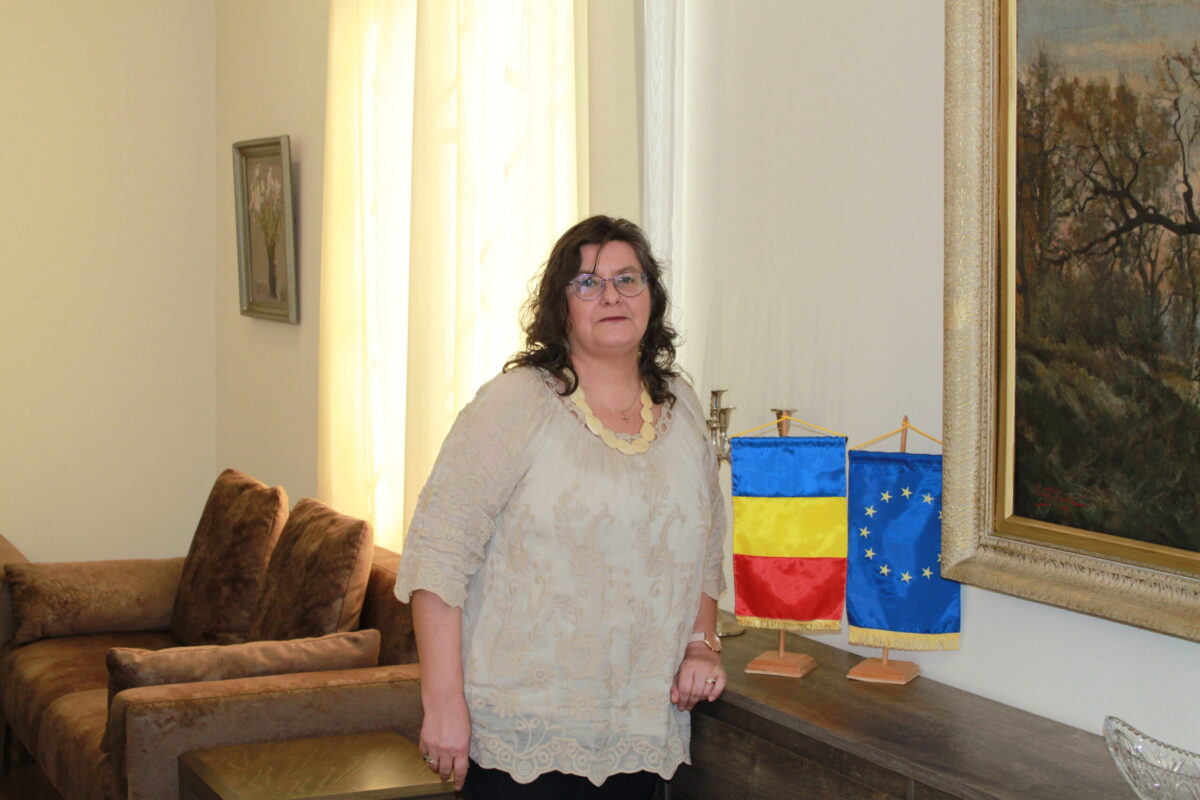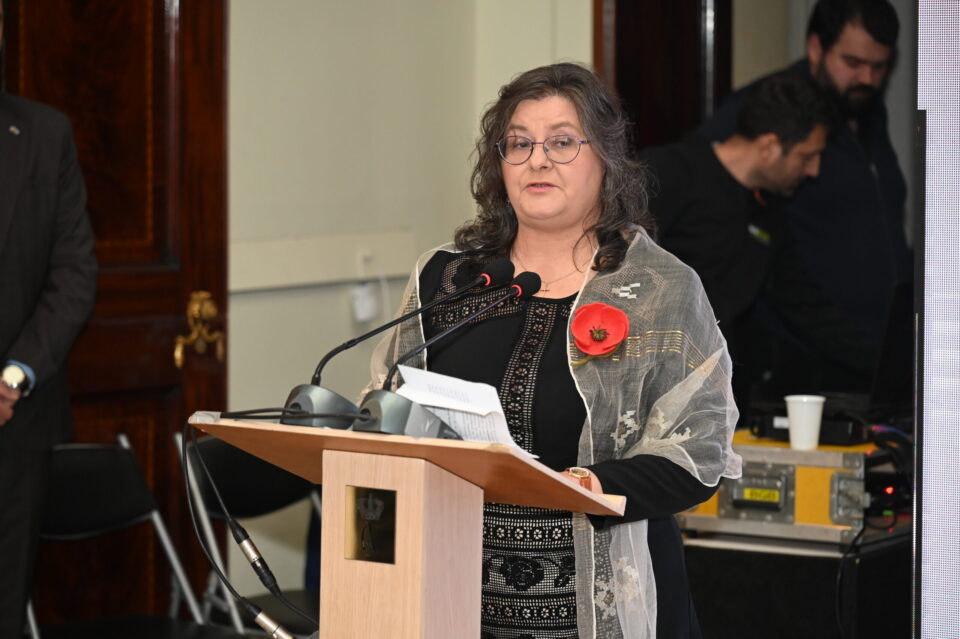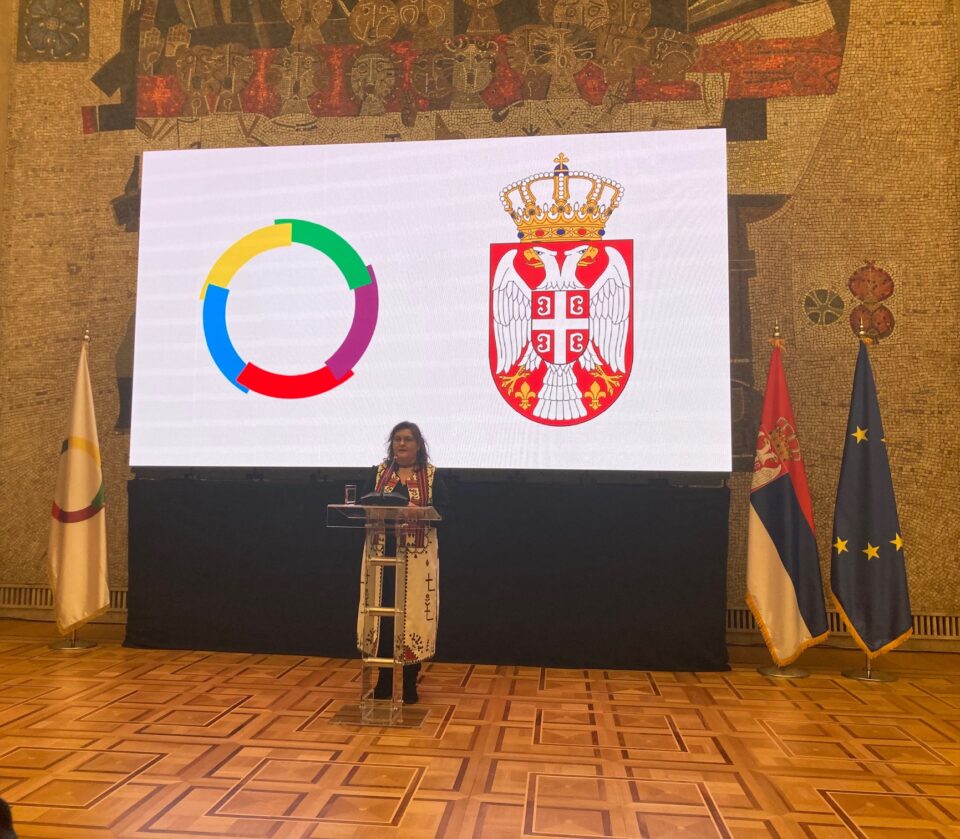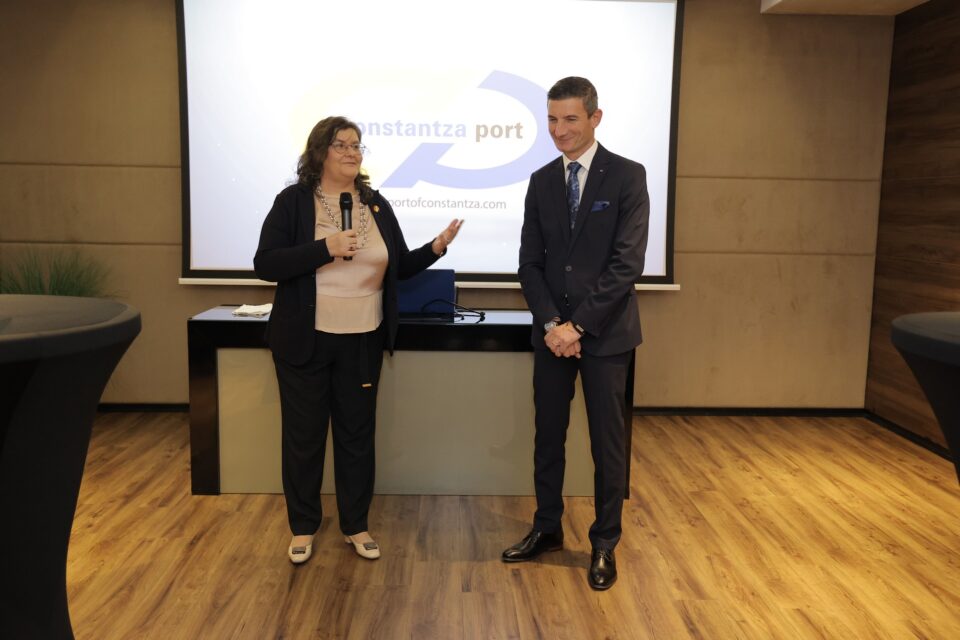The lack of Romanian business presence in Serbia is not due to the lack of interest
 A true intellectual, navigating with ease between cautiously presented, well-chosen words and passionate discourse, Ms Davidoiu speaks with equal dexterity of business as she does of history or culture. She unveils the story behind one of Romania’s most popular sayings and explains why Serbia has a very special place in Romanian hearts.
A true intellectual, navigating with ease between cautiously presented, well-chosen words and passionate discourse, Ms Davidoiu speaks with equal dexterity of business as she does of history or culture. She unveils the story behind one of Romania’s most popular sayings and explains why Serbia has a very special place in Romanian hearts.
I learned recently of a saying that Romania has only two friends and one of them is Serbia. Before asking you how this is felt in Serbia, I would like to ask you if you feel that on a day-to-day basis, the Romanians are aware of the role their western neighbor occupies in their nation’s subconscious.
The roots of the saying come from a very prominent historian and a great friend of Serbia, Nikolai Iorga who said that Romania has two real and true friends: Serbia and the Black Sea. Unfortunately for us, given recent developments, there are some question marks concerning the Black Sea…. but perhaps the Danube could take its place. Enemies are something you are acutely aware of, so your friends or allies sometimes linger in the background. So, Serbia, the neighbor with whom Romania has never had any conflict, has a moderate presence in the Romanian media, but most times no news is good news. Regarding daily life, I cannot recall a moment Serbia has been mentioned in a negative context. What differs is the level to which Romanians know Serbia. This knowledge is much greater in border regions such as Banat or alongside the Danube. In the communist time, Serbia was the beacon of life freedom, and democracy, and Romanians were learning Serbian from Serbian television to get information from the outside world. Now the exchange has many components: commercial, tourist, and cultural. I was recently in a town on the Serbian side of the border, and I was amazed at the number of people speaking Romanian. I was told that over the weekend the whole place is overwhelmed with Romanian tourists coming for the good restaurants on the other side of the border and to enjoy the scenery. The same goes for Serbians making their mini trips to Romania over the weekend to do some sightseeing and shopping and to explore the region a bit. So, there is this neutral positive feeling, and I think that this attitude coming from Romania is appreciated by the Serbians.
 Do you believe there to be, beyond the flows of current politics, this deeply embedded positiveness in Serbia towards Romania as is the case with the Romanian perception of Serbia?
Do you believe there to be, beyond the flows of current politics, this deeply embedded positiveness in Serbia towards Romania as is the case with the Romanian perception of Serbia?
I think the same applies here. I mean, you are aware of all the challenges around you, of all of the problems you are confronted with: troubles in the neighborhood, Kosovo, the war in Ukraine. Romania is not on the agenda, and is not a problem, so, again, no news is good news. We could say that in the subconsciousness of the Serbian people Romania is a silent friend.
Serbia is the gateway to the region
And outside of the silent framework, how is Romania present in Serbia economically, culturally, and politically?
Again, this depends on the region, but I would say we are not economically as present as we would wish to be. Since taking the EU path, we have been Western-oriented, and we have looked for investment coming from abroad. We were, so to say, starting quite low, and to a large part thanks to the EU and the NATO membership, we have managed to achieve a tremendous economic development. This does not mean we are on the same footing as Western European countries, but Romanian companies are now moving from just receiving investment to investing abroad. Serbia and the Balkans are the natural partners. Serbia is the gateway to the region, meaning you have to come and do business here first and then look around.
When it comes to Romania itself, there seems to be this negatively mystical perception of the country outside its borders. Do you believe that how Romania is perceived in Serbia is more realistic than in the rest of the world and if there is indeed a higher degree of cultural proximity between the two countries, how is this felt?
It is not felt enough even though the connection exists. This is something that we have to work on because the cultural exchange, which was mainly in the domain of literature, has ceased somewhat as people do not read books as much as they used to. I therefore think that promoting translation projects is key for collaboration in culture. We also have great cooperation when it comes to film production. However, we are not always aware of this, as those films are less commercial. Also, exhibitions by Romanian and Serbian artists on the other side of the border are plentiful.
Speaking of languages, in Serbia, the biggest neighboring city in Romania is known as Temišvar, while in Romanian it is Timişoara. Does anyone mind the alternative pronunciation? Is it an issue for you if you hear the variation used in Serbia?
I can’t say if it is a problem privately but generally speaking, Romanians prefer it to be known in Serbia as Timişoara. However, as we are talking about a very, very multicultural city with 11 national minorities, including the Hungarian one, which brought about the Temišvar pronunciation, it is natural to have more pronunciations of the name.
Promoting translation projects is key to collaboration in culture
Regarding the country’s take on multiculturalism, Romania’s most highly awarded writer, Herta Müller only learned Romanian in high school having been born to a German family in the entirely German-speaking part of Romania. She has and still writes in German, and even lives in Berlin. Would she be considered a Romanian or a German writer in Romania?
We acknowledge the author’s Romanian connection but, in such cases, we let the author decide on how they want to be represented. We have other prominent writers who are of German origin and it’s up to them to say in which measure the Romanian birthplace or the fact that they grew up in Romania has marked their identity. And this does not only go for writers. The Jewish community is an even better example. Up until some 30 years ago, Romanian Jews were the biggest community of newcomers in Israel. There are, among older generations, many, many prominent figures in Israel, be it in the army or in politics, including diplomacy, who were born in Romania, went to Romanian schools, and speaks perfect Romanian.
Moving a little bit towards the realm of neighbourly relations, Romania, after many years as an EU member has finally, at least in terms of air and sea frontiers, entered the Schengen area. The land border will likely follow soon. What will be the difference in terms of Serbia’s relationship with Romania in this sense? Are there going to be any practical changes when it comes to border crossing?
I can say very openly that the arrival of Schengen has been somewhat overdue. We were long prepared for joining and purely political reasons, subjective ones, have hindered us from becoming members sooner. Being a full member is important, not because it’s an ambition or because it’s a question of pride, but in very pragmatic terms we lose a lot economically by not being in the zone. According to our estimates, between 2 and 3 billion euros is lost by Romanian businesses every year because of this. This costly border is also one of the most secure external borders in the EU. We were never on the Balkan migration route that would have justified this reluctance to give us the full Schengen status that we deserve. So, we must accept these are subjective reasons hindering normality.
 You mentioned subjective reasons twice. What are you referring to, exactly?
You mentioned subjective reasons twice. What are you referring to, exactly?
I’m implying that some countries are using the border issue for their internal political campaigns, as is very visible in Austria, which had no objective reason to oppose our membership and the many Austrian companies in Romania were concerned about possible consequences for their business because of this. This border situation caused a big uproar in the society in Romania. You know, we as people are not very loud or vindictive, but we must acknowledge this is unfair, while at the same time trying to prove every minute and every second of every day that we fulfill all the Schengen membership criteria and are collaborating with other countries. One such excellent collaboration is the border control management between Romania and Serbia. As many as 19 million euros have been recently dedicated to border control improvement on both sides, including the training of the police force, rebuilding many police facilities alongside the border, and investment in modern technology, through a common project financed by the IPA-CBC transborder program. Of the many borders here in the region, the Romania-Serbia one is among the safest. There is a lot of effort put by both sides in securing this border so I don’t think that when Romania becomes a full member of Schengen with the terrestrial border, there will be any major impact because we are already very well prepared and our cooperation is running very, very well indeed.
Serbia and Romania are about to embark on a major gas interconnector collaboration
When you represent Romania, do you find it to be well known for the things the Romanians would wish it were known for?
This is a very polite way to ask this question. Of course, we are not very happy with some of the prejudice against us, and I think Serbians know very well how it is to have an undeserved image abroad. A part of the diplomatic portfolio is always to try to push as much as possible to project the correct image of your country. I am not saying all is perfect – far from that – but at the end of the day we’re much better than our reputation. We lack the marketing and media skills to promote ourselves correctly. Not better, but correctly.
Is there a rational explanation for this negative perception?
Yes, there is a rational explanation. I think that looking back and being very honest with ourselves, we gained a lot of sympathy at the beginning of the 90s because of what we had to go through during a very hard revolution. After that period, miners’ protests gripped a part of the country projecting an image of overall instability mainly because there was a lot of unrequested violence in Bucharest and subsequently coverage in the European media. This earned us in the West an image of a disastrously dysfunctional place. That was the beginning of the disaster and we have been fighting this image of poverty and shabby society ever since. That is why many Westerners are shocked when they come to Romania and find a normal and functioning country.
Moving back to the economy, in the past year, Romanian investment in Serbia has sort of skyrocketed. Is this a possible trend?
We always know that with the investment, these indicators go up starkly because many things pile up and then ten different investments get registered in the same fiscal year and of course, you know there will be a significant upward curve.
Is Romania too big economically to be interested so much in Serbia and what could we foresee for the next few years?
As I said before, in the 90s we started from a very low level, and we had a lot of catching up to do. The lack of Romanian business presence in Serbia is therefore not due to the lack of interest, but rather the capacity. Just now, the Romanian companies are opening themselves to the world and the region, and I believe much could be done here, particularly in the energy sector.
Of the many borders here in the region, the Romania-Serbia one is among the safest.
I was amazed to learn that the biggest private medical chain here is majorly owned by Romanian investors. Funnily enough, it is also one of those that has the least presence in the media and the advertising industry.
MediGroup is a major joint venture between the Romanian and Serbian capitals. In Serbia, they have over 72 clinics and are still expanding. Generally speaking, we have an impressive figure in terms of economic exchange which is over 2 billion euro, but it is far below our capacities. Energy is a major field, and this is probably going to be one of the key pillars of our future cooperation.
Do you believe that the potential of this region that Serbia and Romania in a way share is, just as the potential of collaboration between Romania and Serbia, yet to be uncovered?
It has been 52 years since our last major project together, the Djerdap hydropower plant. In some way or another, there is space for the two countries to develop something major together, and I may announce that we are on the verge of giving life to one such project as Serbia and Romania are about to embark on a major gas interconnector collaboration. The second project in the making would be a motorway connecting our two countries. Romania is the only neighboring country to Serbia with whom no major infrastructure connectivity exists. Thirdly, there is a need for an investment in railway because, currently, no trains are crossing the Serbia-Romania border. Given the increase in trade and the number of trucks at the border crossing, we need to consider starting to work on those issues most seriously indeed.
